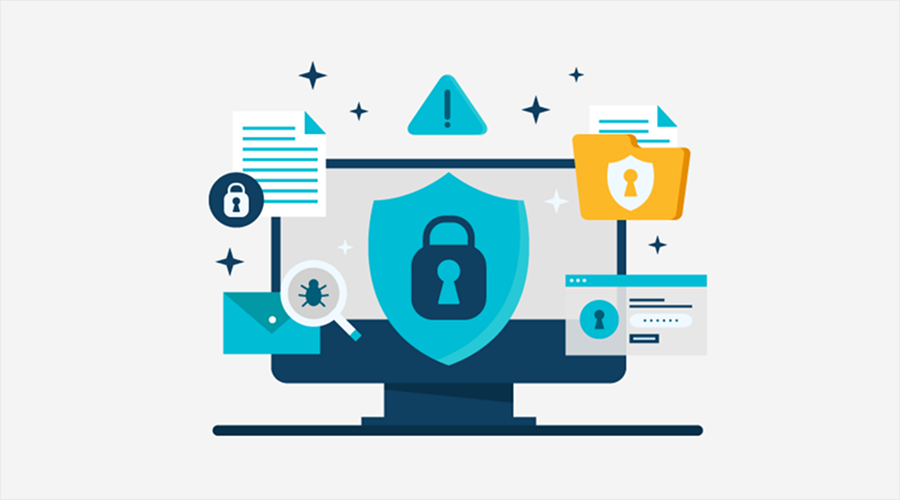
Fintech companies process and manage important financial data every day. A weak security system can lead to data breaches, loss of money, and mistrust among customers. This blog explains why robust cybersecurity plays a key part in defending operations, encouraging trust, and obeying rules in the fintech sector.
The way we handle money, make payments, and invest has been changed by fintech businesses. But the fast development of digital technology makes cyberattacks more common. These companies gather and handle sensitive financial details that cybercriminals always try to exploit. The consequences of a single data breach are serious: companies can lose considerable amounts, suffer in their reputation, and lose the trust of their customers.
The high risks in the financial sector demand that Fintech firms must treat security seriously. Because hackers are constantly improving, cybersecurity needs to keep up. Fintech businesses of all types must take cybersecurity seriously to ensure the safety of their operations, clients, and growth. This blog outlines the major cyber issues in fintech and highlights the importance for every fintech organization to focus on cybersecurity to work smoothly and safely in the modern world.
Common Cyber Threats for a Fintech Company
- Phishing Attacks: Fake emails or links sent by hackers can persuade people to share important information, which results in both unauthorized access and financial fraud.
- Ransomware: When a company’s data is locked by malicious software, they often have to pay a ransom or face losing both money and the ability to operate, as the attack can shut them down.
- Data Breaches: Identity theft and fraud might happen to users because criminals obtain access to their private bank or ID information.
- API Exploits: Hackers can misuse vulnerable APIs in fintech apps to hack transactions or get user data.
- Insider Threats: Those employees who are dissatisfied with the work or simply careless can accidentally share company information.
Why Is Cybersecurity Important for Fintech Companies?

1. Protects Sensitive Customer Data
Fintech businesses take care of significant numbers of personal and financial records. Using cybersecurity measures helps avoid unauthorized access, disclosure, or misuse of your data.
Strong security steps protect the information of customers, including their credit card details, bank accounts, and ID. If this data is exposed, customers risk identity theft, fraud, and many other unfair outcomes.
Encryption, the use of firewalls, and secure access make it tough for anyone not authorized to access this information. Investing in these products protects users’ trust and also defends fintech companies from major legal penalties.
2. Maintains Business Continuity
A cybersecurity attack can stop a fintech company’s work completely. If hackers are successful, the business could stop working for a while, which means both monetary and customer support are lost. With a solid cybersecurity service, companies can operate normally and recover fast when they are attacked.
The approach includes making regular backups, setting disaster recovery plans, and keeping watch for threats in real time. In the current fast financial world, even a little problem can create big issues. Keeping services from crashing and ensuring customers are happy is made possible through cybersecurity.
3. Builds Customer Trust and Loyalty
It’s important for customers that their money and data are looked after safely. A dedication to security by fintech companies reassures people. When a company is attacked by cybercriminals, it can lose its customers’ trust quickly. When data is at risk, people are usually less interested in using certain services.
Having strong and noticeable cybersecurity practices gives people confidence that their information is safe. As a result of trusting consumers, businesses can count on returning customers, references, and building lasting success.
4. Ensures Regulatory Compliance
Such companies have to comply with rules for privacy, such as GDPR, and regulations for financial matters, such as PCI-DSS and those designed for the region’s banks. Under these rules, organizations must protect customer information and inform the government when a breach occurs.
Not complying with these rules can cause major problems and significant monetary penalties. Using secure data processes, regular inspections, and good reporting systems, cybersecurity allows companies to meet the requirements.
Compliance should not only be followed to check a requirement, but it is also a lawful and ethical requirement. By focusing on cybersecurity, fintech companies keep their licenses and enjoy strong relationships with everyone involved.
5. Prevents Financial Losses
Cyberattacks can lead to great losses. As a result of a data breach, a business might need to pay ransom, incur legal expenses, lose customers, and see its brand reputation suffer. Just one attack may lead a small fintech startup to cease operating.
At first, cybersecurity investments may look costly, but they help avoid more serious losses later on. Advanced security detects threats and prevents them from doing any harm.
In addition, they bring down the cost of insurance and minimize financial risks. Money flows rapidly in the digital industry, so cybersecurity is needed to keep it safe.
Also Read: The Essential Future of Cybersecurity: Trends and Predictions
Best Practices to Ensure Cybersecurity for Fintech Companies

1. Use Strong Data Encryption:
If anyone steals your information, encryption prevents them from looking at what’s inside. All information about transactions and customers must be encrypted both when files are saved and when they are being sent over the Internet. Keep your data secure by using encryption protocols approved for the industry, like AES-256 and SSL/TLS.
2. Implement Multi-Factor Authentication (MFA):
Besides requiring passwords, MFA adds one extra step for security. Computers ask users for a variety of verifications to confirm who they are, such as a password, a mobile one-time password (OTP), or biometrics. MFA should be set up for all employees and users, mainly for those who access financial systems.
3. Conduct Regular Security Audits:
Routine checks and tests for security help you find any weaknesses before an attack can take place. All of these audits must involve code reviews, testing the network, checking for compliance, and assessing third-party software. Taking advantage of external security consultants will provide a new perspective in finding unknown risks. Once an audit is completed, any problems found should be quickly resolved.
4. Keep Software Updated:
Software that is no longer updated often has loopholes that hackers can take advantage of. You should update all your applications, operating systems, and platforms to protect them from recent security issues. Ensure that your team can automatically receive updates and create a policy to stay current with every tool and plugin in your fintech applications.
5. Monitor Systems in Real-Time:
Because of SIEM (Security Information and Event Management) tools, the fintech industry can quickly find and address any dangerous threats that arise. These identify irregular actions, login failures, attempts to access data without permission, and indications of malware. Being alerted in real time helps teams prevent damage, which reduces the chance of data loss.
6. Train Employees on Cyber Hygiene:
Employees are frequently the most vulnerable part of any cyber defense. Often, training reveals how to respond if an email is phishing, stay away from unsafe files online, and use safe passwords. Fintech companies need to organize regular or occasional workshops and simulations to promote the right behavior.
7. Secure APIs and Mobile Apps:
Mobile apps are built using APIs to link with outside services. Open APIs offer hackers a simple way to gain access to your system. Add authentication, control API traffic, and validate incoming input data to secure your APIs.
Regularly testing mobile apps is important so that insecure data storage and weak session handling are noticed and fixed as soon as possible. You should always use secure coding and update your app regularly.
8. Establish an Incident Response Plan:
Good defenses help, but alerts can still come in. It clearly explains how your team should find, stop, check, and restore IT systems after a cyberattack. It is important to include people’s roles, how they will communicate, and points for reporting to both authorities and affected users. Drills allow you to practice the plan, which helps everyone know what to do to limit any damage.
Also Read: How AI is Reshaping Cybersecurity in the Digital Age
Conclusion
In conclusion, every fintech business now views cybersecurity as a key foundation for its growth and planning. Strong cybersecurity is now necessary to shield data, earn trust, and make sure day-to-day operations aren’t disrupted. Those fintech companies that focus on cybersecurity can defend themselves and benefit from a leg up over others in the industry.
When businesses use best practices and modern technology, they can help make the financial ecosystem more secure for their users. So, in our rapidly changing digital world, security cannot be ignored; it is your biggest asset.






